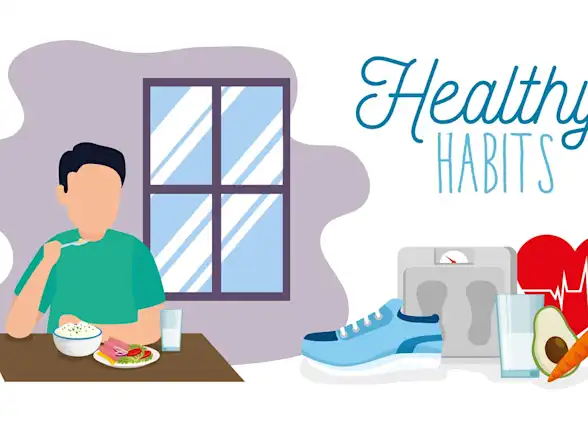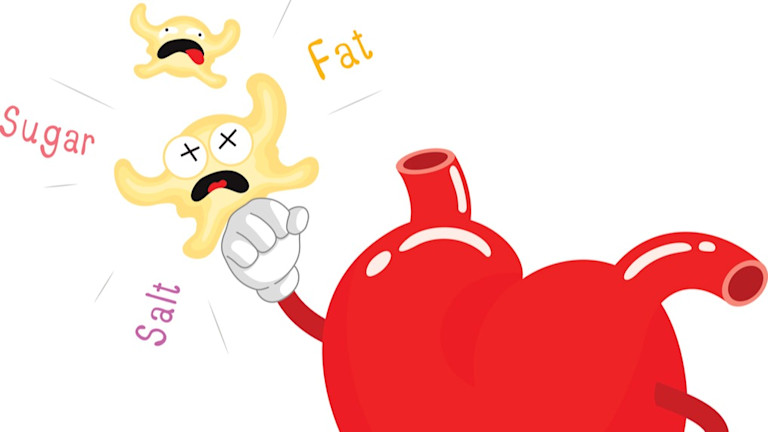Heart Failure Self-Care
Once diagnosed with heart failure, new strategies for self-care are essential to minimize symptoms and slow disease progression.
Get insurance benefits, legal documents, and medical records in one place

Helpful Highlights
Weigh every morning and monitor blood pressure
Eat a heart-healthy diet and take medications as prescribed
Stop smoking
Exercise and get adequate sleep
There are several areas of daily life where changes can and should be made to help manage heart failure symptoms and control its progression. A heart failure diagnosis does not have to be a death sentence and adopting target health behaviors in a few key areas can ensure a longer, higher quality of life.
Weigh every morning
Upon waking in the morning, and after toileting, get on the scale (preferably without clothing). Weighing at the same time every day, under the same circumstances, guarantees an accurate tracking of weight gain. Weight gain is an early sign of symptom onset because it indicates fluid retention.
Keep a daily weight chart. If there is more than a 2 lb. gain in one day or a 5 lb. gain in one week, call the provider. If there is sudden weight gain, check ankles, lower legs, and belly area for swelling before calling, as the provider will ask about this.
Monitor blood pressure
In addition to daily weight, keep track of blood pressure. Elevated blood pressure can put a strain on the heart and cause the muscle to weaken further. Blood pressure should be taken once a day, though at random times throughout the day. Not just in the morning, like weight. Record the blood pressure and the time taken in a chart, as well.
Ask the provider or the pharmacist for advice on which blood pressure monitor is best and get instructions on how to use it. If the monitor is brought to the appointment, the provider's nurse can demonstrate how to use it properly.

Heart healthy diet
Eat fresh, whole foods prepared at home rather than highly processed and fast foods. This will limit sodium (salt) and reduce fat and cholesterol. A heart-healthy diet is essential for those with heart failure and foremost starts with keeping sodium intake under 2,000 mg per day.
Where salt goes, water follows. So, the more salt that is consumed, the more water will be retained with it. Extra fluid buildup in the body will worsen heart failure because the heart has to work harder to push through all that excess fluid volume. Some common high-sodium culprits are:
Adding table salt to meals
Any fast foods, especially pizza and chili
Any cured meats like ham, pepperoni, and jerky; any processed meats like sausage; and other sliced deli meats (whether prepackaged or carved at the counter)
Soups
Anything canned*
*If canned foods are necessary, look for those marked "no salt added" or "reduced sodium" and, whenever possible, rinse the contents before cooking/consuming.
The most important thing to help maintain a heart-healthy diet is learning to read food labels.
Limit fluid intake
This does NOT mean eliminating fluid intake! Hydration is essential for good circulation and proper function of all body parts and systems. However, drinking too many fluids can worsen heart failure for the same reason as too much salt... Volume overload.
Talk to the healthcare team about what fluids are best and in what daily quantity. Generally, clear liquids are best, preferably non-alcoholic, non-caffeinated, and without added sugar.
Water, including sparkling and flavored waters
Natural juices (not from concentrate - look on the label)
Unsweetened and decaffeinated teas and coffees
Sugar-free drink mixes
Non-alcoholic seltzers, including flavored seltzers
Sports drinks and energy drinks are NOT recommended.
This is not to say that caffeinated drinks, sodas, and alcohol need to be eliminated, but they should be greatly reduced. Again, talk to the healthcare team for recommendations.
Medication regimen
Adhere to the medication regimen ordered by providers. If there are concerns, discuss them with the providers before making any changes. Always speak with providers first and do not stop any medications abruptly.
Stop smoking
Smoking and tobacco cessation is the single most important thing anyone can do to improve their health, especially those with heart problems. Talk with the healthcare team about programs that can help (and are likely covered by your loved one's health plan).
Exercise
Some stress on the heart is good, even with heart failure. Stress-induced through activity (versus that induced by excess fluid, caffeine, or anxiety) can help the heart maintain its existing strength. Exercise also improves other body functions, which support the heart.
Note that mental health is equally important to physical exercise. Signs of depression or anxiety, which are common among those requiring care, should be reported and discussed with healthcare professionals.
Dress for success
Skip sports socks or knee-high hosiery - any foot or leg wear with a tight band at the top. This includes popularly advertised compression socks. These can restrict blood flow from the lower part of the body to the heart, which increases the risk of a blood clot forming in a leg vessel (called a deep vein thrombosis or DVT).
The exception to tight-fitting legwear is compression stockings prescribed by a provider.
Controlling body temperature is also important in managing heart failure. Dress in layers so that if the environment gets too hot or too cold, clothing can be added or removed as needed to stay comfortable.
Good sleep hygiene
Getting quality sleep is a must for good overall health. Unintended changes or disruptions in sleep habits and patterns are an early indicator of a potential problem developing.
Find a sleep-wake routine by going to bed and waking up at the same time every day, even on weekends.
Incorporate habits into the sleep-wake routine (i.e., consistently do a nighttime and morning routine - brushing teeth, applying lotion, reading a chapter, listening to music, turning on a fan or noise machine (if used), closing/opening blinds, stretching).
Keep the room dark, cool, and quiet while sleeping.
Explore special pillows designed to alleviate neck and shoulder pressure, as well as sleep apnea symptoms.
Refrain from late afternoon/evening napping.
Heart failure care plan
According to the American Heart Association, a typical heart failure care plan - that will be individualized by your loved one and their care team - can fall into three zones:
Green = Stable. No noticeable changes in heart failure symptoms. Stable weight. No chest pain or shortness of breath. Continue daily weight checks, blood pressure monitoring, and treatment plan, as recommended.
Amber = Warning. Call the provider in the event of a new cough, shortness of breath with activity, increased swelling in feet or legs, or sudden and significant weight gain (refer back to "Weigh every morning" above). An office or telehealth visit may be needed. A change in diet or medication is likely required. Follow the recommendation of the provider and the instructions in the treatment plan.
Red = Danger. Utilize rescue drug protocols as outlined in the treatment plan (i.e., additional doses of diuretics, repositioning or activity, inhalers or supplemental oxygen), and consider whether emergency services are needed. Get immediate attention for sudden and significant weight gain, noticeably increased swelling, inability to get comfortable - especially if unable to lie flat, experience shortness of breath even at rest, or have a constant, hacking cough - especially if accompanied by frothy or pink-tinged sputum.
RESOURCES
American Heart Association (AHA) – Heart Failure
American Heart Association (AHA) – Classes & Stages of Heart Failure
2022 AHA/ACC/HFSA Guideline for the Management of Heart Failure
Caraballo, C., Desai, N.R., Mulder, H., Alhanti, B., Wilson, F.P., Fiuzat, M., et al. (2019). Clinical implications of the New York Heart Association classification. Journal of the American Heart Association, 8(23), e014240. doi: 10.1161/JAHA.119.014240
Cleveland Clinic – Heart Failure
No content in this app, regardless of date, should ever be used as a substitute for direct medical advice from your doctor or other qualified clinician.
Get more support and guidance on insurance benefits, medical records and legal forms.
Helpful brings together your insurance benefits, legal documents, and medical records in one personalized place — so you always know what you have, and never have to search again.

Technology for Health Tasks. Mental Health for the Tough Stuff.
Helpful connects your medical records, insurance, and caregiving tasks automatically. And when you need more than logistics, a therapist is here to guide you.
In-Network and Covered
For Individuals, Couples and Families
HIPAA Compliant, Data Stays Private


Healthcare Tasks Simplified

From syncing records to spotting drug interactions, Helpful does the heavy lifting, turning complex health info into clear tasks and showing you benefits you can actually use, giving you clarity and control over your care.

In-Network Mental Health

Our licensed therapists are here to support you and your loved ones through stress, burnout, and life’s hardest moments, with an inclusive, compassionate approach that works with most insurance plans.

Create Legal Documents

Plan ahead by creating will, trusts, advance directives and more, that ensure your wishes are honored in the event you can’t speak for yourself -with Helpful guiding you every step of the way.